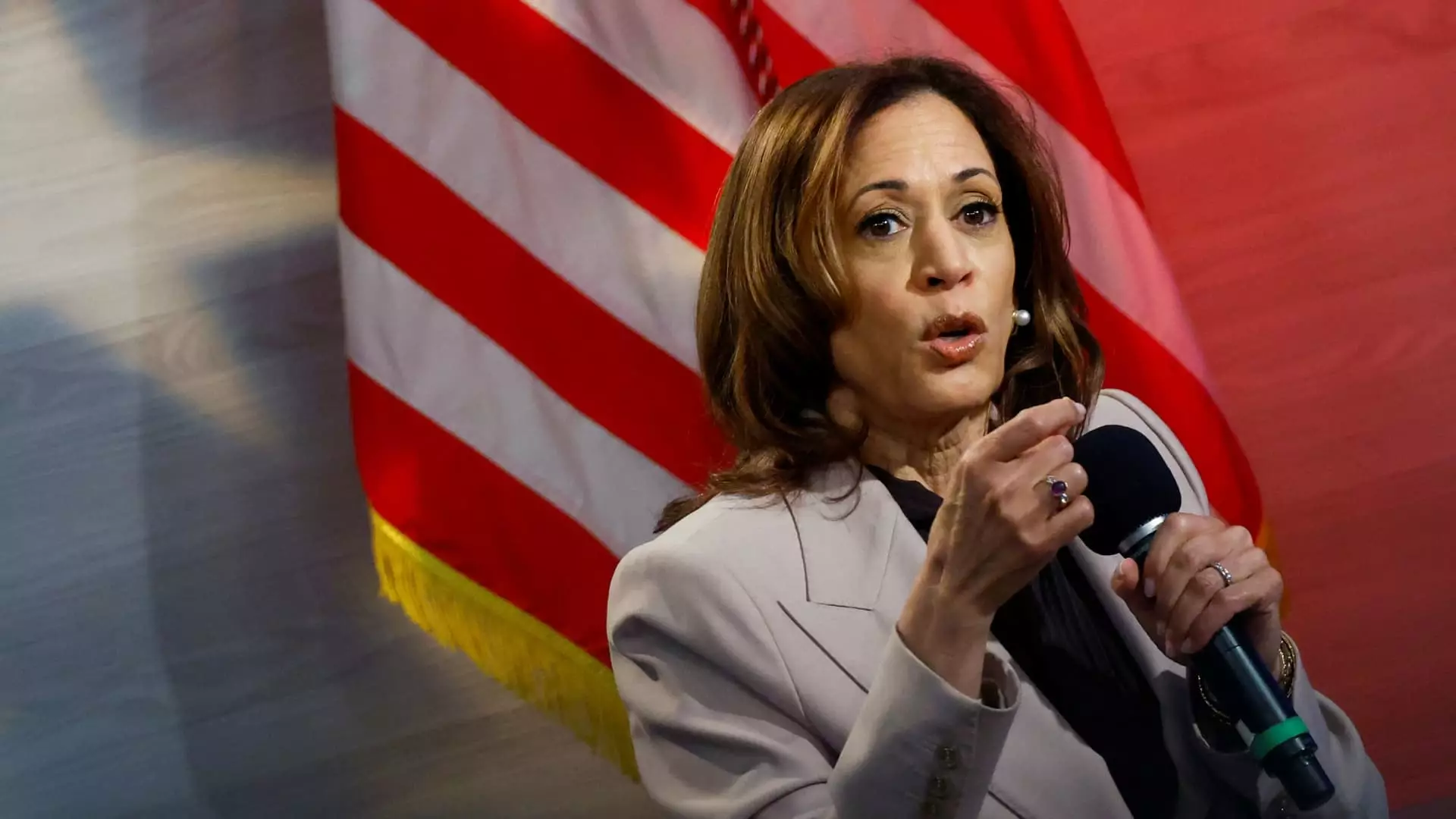As the 2024 election looms, Vice President Kamala Harris is strategically positioning herself to connect with young Black men, a demographic that has historically been a cornerstone of Democratic support, yet is showing signs of shifting allegiances toward the Republican Party, particularly under the influence of former President Donald Trump. The urgency of Harris’s appeal is underscored by a recent NAACP poll revealing that over 25% of Black men under 50 favor Trump over her. This changing dynamic calls into question the effectiveness of the Democratic engagement strategies and underscores the need for a focused approach that resonates with this vital group of voters.
Understanding why young Black men are moving in Trump’s direction requires a comprehensive analysis of socio-economic factors that have shaped their experiences. Economic disenfranchisement, historical inequality, and a lack of access to fundamental resources like capital for entrepreneurship are crucial elements that need to be addressed. If Harris aims to win these voters back, her strategy must not only acknowledge their realities but also propose actionable solutions.
In her recent remarks to the National Association of Black Journalists, Harris articulated a vision aimed at elevating economic opportunities for Black men. Speaking candidly, she emphasized that assumption alone will not secure votes. “I’m working to earn the vote,” she stated, illustrating her commitment to a more personalized approach that directly appeals to their economic needs. It’s important for political figures to recognize that in light of shifting sentiments, creating a robust economic argument can be more impactful than simply relying on race as a unifying factor.
Harris highlighted an “economic opportunity tour” that focused specifically on Black men, an initiative that speaks to the importance of understanding the community’s dynamics. By channeling “billions more dollars” into community banks, Harris aims to bridge the financing gap faced by aspiring entrepreneurs who often lack the collateral or relationships needed to access funds. Her proposals, including a substantial small business tax deduction and the removal of medical debt from credit scores, are designed to dismantle the economic barriers that have persisted for generations.
While the ideas put forth by Harris are commendable, the Democratic Party faces significant trepidation regarding perceptions of economic management. Many young voters, particularly Black men, are disillusioned with the current administration’s handling of economic issues, including soaring inflation and cost-of-living crises. Economic nostalgia for the pre-COVID era under Trump may also play a role in fostering his appeal, making it imperative for Harris to convincingly present herself as the candidate of economic relief.
As she strives to reconnect with Black male voters, Harris must confront a broader narrative surrounding the Democrats’ relationship with economic growth. Harris stresses, “When they do better economically, we all do better,” but how this translates into policy and real-world outcomes remains a key question. The challenge for her campaign is to present data and success stories that prove her administration positively influences the economic trajectory of the Black community.
The Road Ahead
To regain the loyalty of young Black male voters, Harris must pivot her campaign strategies with agility, leveraging the insights gained from her private engagements and public forums. As she continues to shape her economic message, open dialogues with constituents and community leaders will be necessary to gain genuine insight into their needs and concerns.
Moreover, Harris cannot ignore the aggressive rhetoric used by Trump which, if unchallenged, may further alienate the electorate she hopes to court. As she moves forward, countering divisiveness with unity and respect while showcasing her administration’s commitment to tangible change will be critical. The upcoming months will test Harris’s ability to articulate a compelling vision that not only resonates with young Black men but also revitalizes trust in the Democratic party as a whole.
While Harris has laid the groundwork for economic proposals that specifically target the needs of young Black men, translating those into meaningful action and restoring confidence in the Democratic Party will be paramount as she navigates the challenges ahead in the election cycle.


Leave a Reply